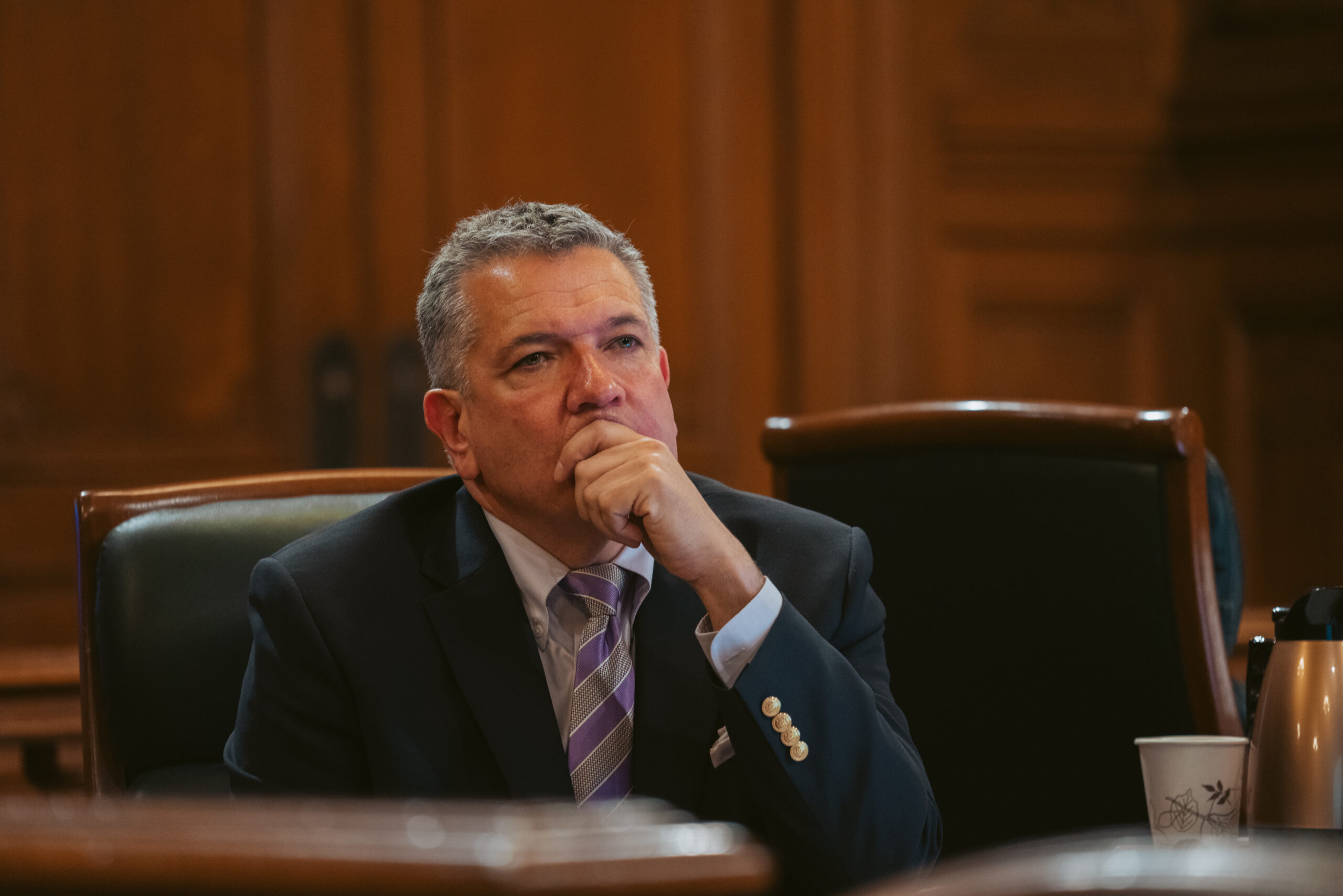A hearing over a ballot measure intended to increase San Francisco police ranks devolved into a rancorous debate at City Hall Monday, leaving the future of the measure up in the air.
The measure in question, authored by Supervisor Matt Dorsey, seeks to mandate that the police department reach full staffing within five years, adding about 100 officers per year and offering $75,000 hiring bonuses for new officers, among other provisions. At the Board of Supervisors’ Rules Committee, Supervisor Ahsha Safaí proposed amendments that Dorsey called “hostile” and a “poison pill” during a testy discussion.
Safaí and Supervisor Shamann Walton, along with labor organizers and members of progressive political groups, took issue with the measure’s estimated price tag of $300 million over 5 years, suggesting it should include a tax or other funding source and also be expanded to include staff for other first responder jobs, such as 911 operators.
“I find it strange it took you months to come up with a charter amendment that does absolutely nothing,” Walton said. “It’s a myth to get voters to think we can guarantee a minimum number of staffing. … This is something that can happen in the executive branch of government.”
Safai’s amendments proposed making the staffing mandate contingent on certifying that a “future tax” could fund the measure. Dorsey earlier agreed to some amendments to the measure, including reducing the minimum staffing level from 2,182 to 2,074. But he decried linking the staffing mandate to a new tax, saying that fully staffed police “is part of the baseline obligation of what a well-functioning city government should do.”
“This is holding San Franciscans hostage … for a tax hike,” Dorsey countered. “This is making San Francisco into the Spirit Airlines of municipal governments. I think it would be funny if it weren’t so harmful.”
Safaí then blasted Dorsey for using the term “hostage” in light of the war between Israel and Hamas, which was launched in response to the Oct. 7 mass murder and hostage-taking in Israel, calling the phrasing extreme.
Around 55 speakers, mostly representing labor groups, packed the room to give their opinions of the measure. Most spoke out against Dorsey’s version.
“Our problems are the same as San Francisco police, but we’ve been living it already,” Bert Wilson, a 911 dispatcher, told the committee. “We have a 40% staffing shortage right now. Every weekend, there’s mandatory overtime.”
Rudy Gonzalez, secretary-treasurer of the San Francisco Building and Construction Trades Council and organizer of the labor presence at public comment, told The Standard, “Dorsey has proposed $75K signing bonuses for new cops with no way to fund them. In the context of the mayor ordering departments to again cut their budgets, this is totally reckless and purely political.”
Gonzalez was referring to Mayor London Breed’s recent letter to departments, which warned of a looming deficit and asked for midyear budget cuts of up to 3%. He also cited a poll commissioned by a labor coalition that showed 60% of voters opposing Dorsey’s measure in favor of funding a comprehensive public safety plan.
Others echoed Dorsey’s concerns that San Francisco’s police officer shortage risks hampering the city’s overall recovery.
“We face not only a shortfall of officers but a serious perception issue. The potential losses both in terms of economic activity and overall vibrancy are immense,” said Julia Rome, public policy director at SF Travel.
In the end, the committee voted to approve Safaí’s amendments and agreed to further discuss the measure at its next meeting.
Dorsey said he’s “evaluating his options” on how to proceed with the police staffing measure. His options could include either tabling the measure and collecting signatures to place it on the ballot or trying to persuade other colleagues on the Board of Supervisors to undo the amendments at the full board.
